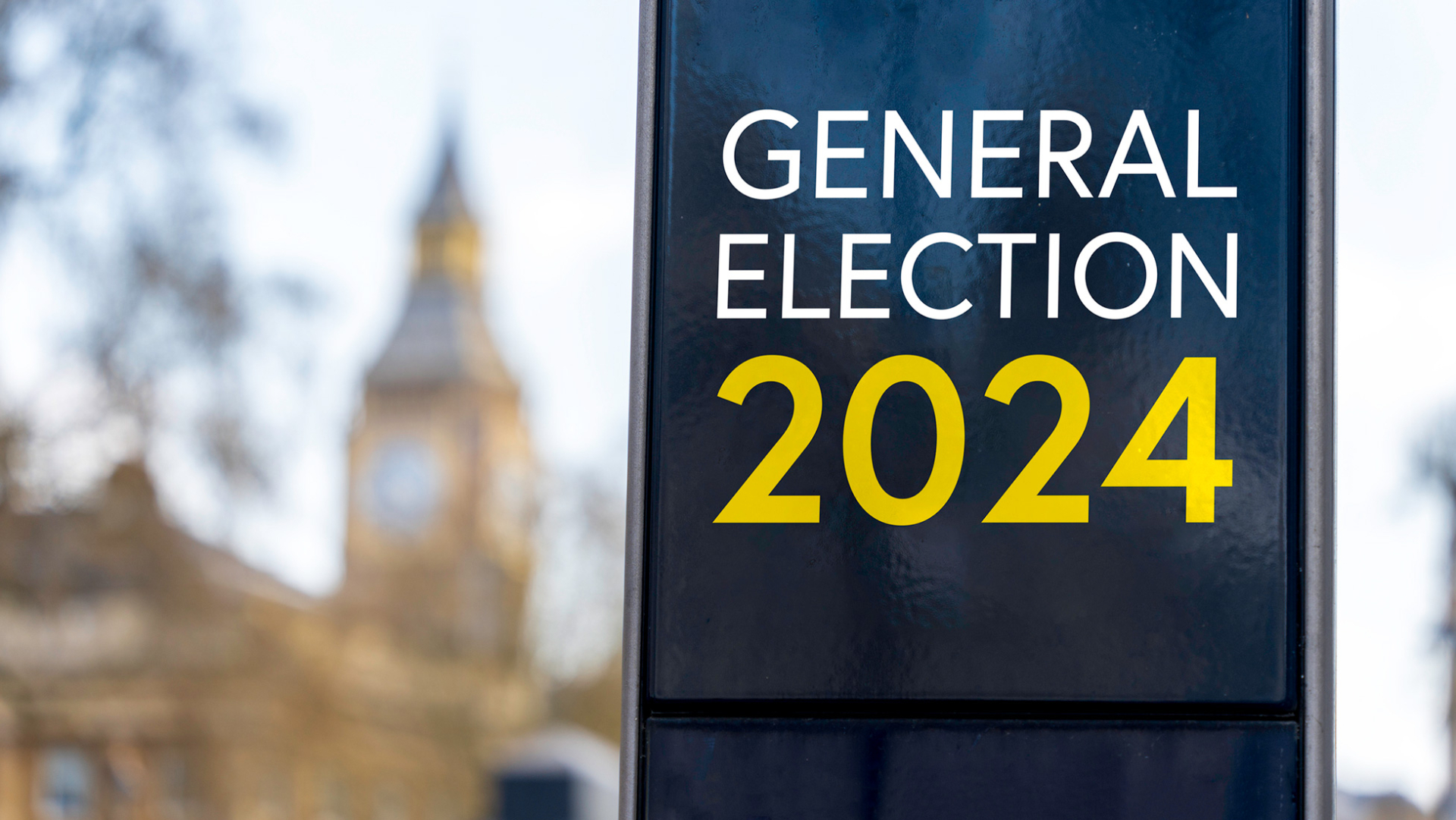On the 5th of July 2024, the British Conservative Party lost a general election for the first time in 14 years, losing 251 seats of the UK’s 650-seat legislature in a landslide and handing power over to the Labour Party and its leader, Keir Starmer. The result is a shocking reversal of fortune for a party that won a convincing majority just under five years ago, and may provoke curiosity and trepidation among observers in Asia who may not know what the traditionally socialist Labour Party stands for today, after nearly a decade and a half since its last prime minister left office. This article will explain the circumstances that led to the Conservative Party’s downfall, discuss the ideological background to the Labour Party’s victory, and present an analysis of what to expect from the new government’s foreign and defence policy, particularly as it pertains to the Indo-Pacific.

The downfall of the Tories
It could be seen as very ironic that the Tories[1] lost the election so dramatically, as it was the decision of their leader and then prime minister, Rishi Sunak, to dissolve Parliament early in the first place. While he was required by law to call an election before January 2025, many had expected it to take place in the autumn, so the shock announcement that it would be held in summer baffled political commentators and infuriated Conservative Members of Parliament, as opinion polls at the time put the Tories at a 20-point disadvantage against Labour.[2] Some Tory MPs even briefly considered ousting Sunak as leader to call the election off,[3] but ultimately decided against it, and simply chose to retire en masse, leading to the biggest exodus of sitting Conservative MPs in modern history.[4]
While we may never know for sure why Sunak called the election when he did, it is unlikely that waiting a few months would have changed much for the party’s chances. Polls had consistently put the Conservatives at a disadvantage since the end of 2021, when Boris Johnson was found to have broken coronavirus-era laws against private gatherings to hold secret parties with his colleagues,[5] a scandal that eventually led to his resignation in 2022.[6] This decline in support went into freefall after Johnson’s successor Liz Truss proposed a hugely controversial package of tax cuts and government borrowing, which shocked markets and caused a dramatic fall in the value of the pound, forcing Truss to resign only fifty days after taking office.[7] By the time the election was called by Sunak, the country was suffering from a cost of living crisis caused by the COVID-19 pandemic, Russia’s invasion of Ukraine, and, many argued, Conservative cuts to public services since 2010 and the consequences of Brexit. Many Brexit supporters who had voted for the party in 2019 were further incensed that the government had responded to the decline in immigrants from the EU by opening new pathways for highly skilled migrants from across the world, thus bringing about a historic rise in people entering the country.[8]
Hence, the Conservatives needed to run a historically strong campaign in order to convince voters that they could be trusted with another five years in office. Unfortunately for them, they instead ran a historically weak one. Sunak significantly angered right-wing voters two weeks into the campaign by leaving a D-Day commemoration event early to do a TV interview, which was seen as unpatriotic and disrespectful to veterans.[9] The following week, a Tory MP and aide to Sunak was found to have placed a bet on the date of the election three days before it was announced to the public, and subsequent investigation revealed that even more figures associated with the Conservative Party were being investigated for potentially illegal gambling on the election.[10] The reputation of the party and the prime minister became so bad that Tory candidates avoided referring to them in their campaign materials, attempting to distance themselves and emphasise their local credentials.[11] In the last days before the election, Sunak appeared to simply give up any hope of winning, instead urging the public to vote for his party just to stop a Labour “supermajority”.[12] It is perhaps no wonder then that the Conservatives won just 121 seats – the fewest they had ever won in two centuries of being a modern political party. Labour won 411, the second-largest number they had ever won,[13] which allowed them to form a new government immediately.
Ultimately, the writing was on the wall, and had been legible for over a year before the election was even called. 14 years of Conservative rule had exhausted voters, their poor response to the many crises facing the UK in the early 2020s had wrecked their reputation for economic credibility, and the many scandals they had gone through had left them looking weak and bitterly divided. But did this mean that the electorate enthusiastically embraced Labour’s offering instead? The evidence suggests that this is unlikely.
The Labour Party in 2024
The current leader of the Labour Party, and the new prime minister, is Keir Starmer, a former human rights lawyer and Director of Public Prosecutions. First elected as a Member of Parliament in 2015, Starmer became Shadow Secretary of State for Exiting the European Union in 2016, before succeeding previous party leader Jeremy Corbyn to take over Labour in 2020.
Corbyn was a divisive figure, to say the least. A lifelong committed socialist, he was elected as party leader in 2015 following a Labour defeat in the general election that year, promising a break with the centrist policy direction that had dominated the party since Tony Blair’s leadership in 1994.[14] Corbyn was massively popular among young people, and under his leadership, membership of the party surged.[15] However, the socialist faction he represented was distrusted within the parliamentary party, leading to intense infighting and open attacks on his leadership by fellow Labour MPs. After four years of very public internal disputes over the party’s position on Brexit, allegations of antisemitism within the party, and the radical left-wing policies advanced by Corbyn’s shadow cabinet, the party suffered a crushing loss in the 2019 General Election to Boris Johnson’s Conservative Party, making Corbyn’s position untenable and forcing him to resign.[16]
In the subsequent leadership election, Starmer sold himself to the largely left-wing, pro-Corbyn membership as a socialist who would inherit Corbyn’s progressive legacy.[17] However, upon seizing power, Starmer quickly abandoned many of the policy commitments he made during the campaign, including abolishing university tuition fees, renationalising energy, water, and postal services, and increasing income tax on the top earners in the country.[18] Moreover, it is alleged that he began a broad campaign to clamp down on the socialist faction of the party, blocking left-wing candidates for local or national elections and imposing centrist candidates in their place.[19] Most shockingly, in 2020, Jeremy Corbyn himself was banished from the parliamentary party after a tweet in which he claimed that the allegations of antisemitism in the party under his leadership had been “dramatically overstated”.[20] Starmer no longer makes any pretence of attempting to maintain continuity with the Corbyn years, and throughout the election campaign would frequently highlight that he was leading a “changed” party, pledging that Corbyn would never be allowed to return to Labour.[21]
Labour thus went into the 2024 election trying to emphasise its distance from the perceived radicalism of the 2015–2019 years, but otherwise declined to put forward a coherent policy vision. On top of abandoning many of its own progressive policies, the party’s leadership have stressed that the economic pressures of the country would not allow them to reverse unpopular Conservative policies such as restrictions on families with more than two children receiving social welfare.[22] Polling suggested that before the election, roughly half of the electorate did not know what Starmer stood for,[23] perhaps not helped by the fact that he had made such a significant shift from being a loyal Corbyn supporter to the standard-bearer of the anti-Corbyn faction.[24]
Starmer’s strategy seemed to be simply to sit by and structure policy based on what would not receive negative media attention while allowing the Conservatives to destroy themselves. On the surface, this seemed to pay off by winning his party an incredible majority in Parliament. However, commentators have highlighted the fact that Labour won only 33.7% of the vote, a mere increase of +1.6% from 2019.[25] In fact, the total number of votes won, 9.7 million, is actually less than the 10.2 million votes won by Corbyn in 2019, indicating that the party has not so much regained the trust of the nation as it has benefitted from the collapse of the Tories while keeping its level of support relatively stable. While former Conservative voters seem to have joined the party, many on the left wing have departed. Of particular note is the huge rebellion within the party that occurred when Starmer appeared to say in an interview following the start of the war in Gaza that Israel “has the right” to cut power and water from Gaza,[26] a position that sharply differentiated him from the pro-Palestine stance taken by Corbyn throughout his career. Left-wingers, including many Muslims, broke away and challenged the party as independents or members of third parties in the election. Ultimately, Labour lost five seats to pro-Palestinian independents (including Corbyn himself),[27] and only narrowly won some key seats that had previously returned strong majorities.[28]

Hence, while the Labour victory is impressive, it rests on some very unsteady foundations. Despite having an ostensible mandate to run the country, they lack the support of the majority of the population. Many constituencies were won with only very narrow margins – Labour won the constituencies of Hendon, Poole, and North West Cambridgeshire by 15, 18, and 39 votes respectively, out of over 40,000 votes cast in each.[29] While this reflects a deliberate strategy by Starmer’s team to maximise the number of seats under Britain’s non-proportional electoral system,[30] it does nonetheless mean that the party will have to work hard to ensure that another massive reversal of fortunes does not happen in 2029.
Whither British Foreign Policy?
By ending almost a decade and a half of Conservative rule, the election has drastically changed the balance of power in domestic politics in the UK. But will it represent a considerable alteration to the status quo in Britain’s foreign and defence policy, particularly in its relationships with Japan and other Indo-Pacific partners? While the vagueness of Labour’s promises makes it difficult to ascertain what will actually become policy, on balance, I argue that this will not be the case. The evidence suggests that the new Labour government is likely to maintain Britain’s current alliance priorities due to the dominance of the moderate, anti-Corbyn faction in the party and its keenness to avoid reawakening divisive public debate over the country’s relationship with the European Union.
By prominently placing national security first among the “strong foundations” that the new government will bring, Labour’s election manifesto is a strong indicator of how seriously the party views defence.[31] Starmer unequivocally states that Labour’s commitment to the nuclear deterrent is “absolute” and their commitment to NATO is “unshakeable”. Specifically, they have promised to conduct a Strategic Defence Review and to work towards spending 2.5% of GDP on defence. The manifesto’s statements on foreign relations are, understandably, focused mainly on Europe and how the new government will continue to strengthen economic and security relations with the EU post-Brexit. But it does spare some space to elucidate the party’s stance on AUKUS, which it fully supports, and China, which it takes a cautious stance on. The manifesto promises that a Labour government will conduct an audit of the UK-PRC bilateral relationship and “co-operate where we can, compete where we need to, and challenge where we must”. These positions, as well as the “three Cs” wording, had been articulated in scattered statements previously,[32] but were fully formalised in the election manifesto, and are notable for being at odds with Corbyn’s NATO-sceptic, anti-nuclear foreign policy.
While scant on specific commitments and details, the manifesto does indicate that Starmer’s intention is largely to continue the trend of the Conservative government in its foreign and security policy. Scattered statements largely seem to support this – David Lammy, the new foreign minister, stated in a recent interview with the French journal Grand Continent that he supported the UK’s closer relations with ASEAN and advocated for increased cooperation with Indo-Pacific democracies.[33]
Nevertheless, there are still signs that the party is, at best, unsure about how seriously it should engage with the region. In the same interview, Lammy takes pains to stress that European security is still its “number one” priority. Moreover, while he does use the term “Indo-Pacific”, it was noted as recently as March that Labour as a whole is highly reluctant to use the term,[34] with Labour’s then shadow minister for the region describing her office as being for “Asia and the Pacific”.[35]
Additionally, the party’s Defence Secretary, John Healey, argued just over a year ago that the Conservative government’s tilt towards the Indo-Pacific was a “serious flaw” – prompting criticism from British defence experts.[36]
Does this indicate that a Labour government is likely to divest resources away from the region in favour of building on security capabilities in Europe? Not necessarily. Firstly, it must be noted that Labour’s priority until now has been to do whatever was necessary to win the election, which has meant that policy commitments were based not on deeply held beliefs, but simply on whatever would be the least controversial and keep media attention away from Labour as the Conservatives self-destructed. It would not be out of character for a Labour government to go back on previous commitments. Moreover, none of Starmer, Lammy, nor Healey has any significant foreign or defence policy experience. Lammy even voted against keeping the UK’s nuclear weapons in 2016 – a decision he was forced to justify after Conservative attacks during the election.[37] Therefore, the new government is likely to be heavily reliant on the expertise of civil servants regarding decisions involving Britain’s engagement with the Indo-Pacific, who, having hands-on experience with the stakes at play in the region, will probably advise maintaining the status quo.
Nevertheless, the adjustment period required as the new government settles in is likely to take Britain’s focus away from Asia, at least temporarily. A major priority will be to address pressing domestic issues, including the massive economic challenges facing the country. Moreover, it is undeniable that the war in Ukraine is the most salient foreign policy issue for Britain right now, due to its relationship with those previously-mentioned economic challenges, as well as the dire implications for collective European security were Russia to attempt to escalate its ambitions and attack a NATO country, as some fear it may.[38] Therefore, it is likely that Labour will follow up on its promises to prioritise strengthening ties with Europe and contributing to NATO.
Even the war in Gaza, despite having little direct relation to Britain’s foreign policy interests, is likely to receive much time and attention from the new British government, due to the formidable performance by pro-Palestinian candidates in the election, demonstrating the need to attract progressive voters back to the party if it wishes to win a second term. Indeed, within days of winning the election, Starmer contacted both the Palestinian president and Israeli prime minister to call for a ceasefire and a path to Palestinian statehood.[39]
Comparatively, China poses little direct threat to the UK, and while existing agreements with Japan, Australia, and other Indo-Pacific allies will continue to be upheld and worked on, it is difficult to see the new government doing much to deepen these ties beyond following the routine advice of bureaucrats. Asian leaders can breathe a sigh of relief that business will continue as normal with a new party in charge – but they shouldn’t hold their breath as they wait for Britain to proactively engage with the region.

(2024/07/25)
Notes
- 1 “Tory” is a colloquial term in Britain to refer to members or supporters of the Conservative Party.
- 2 Paul Seddon, “Rishi Sunak announces UK general election for Thursday 4 July”, BBC News, May 23, 2024.
- 3 Nick Gutteridge, “Andrea Leadsom ‘asked about ousting PM’ days before quitting politics”, The Telegraph, May 25, 2024.
- 4 Oscar Bentley and Brian Wheeler, “Is it 1997 all over again as Tory MPs head for the exit?”, BBC News, May 29, 2024.
- 5 Toby Helm, “Labour races to nine-point lead in polls in wake of sleaze controversies at No 10”, The Guardian, December 11, 2021.
- 6 Andrew MacAskill and Andy Bruce, “Decrying ‘witch hunt’, Boris Johnson resigns from UK parliament”, June 10, 2023.
- 7 Toby Helm and Michael Savage, “Voters abandon Tories as faith in economic competence dives”, The Observer, October 1, 2022.
- 8 For two contrasting critiques of the Conservatives’ economic record, see Max Colchester and David Luhnow, “World’s Most Successful Political Party Stares at Sweeping Defeat in U.K. Election”, The Wall Street Journal, July 3, 2024, and Paul Krugman, “How the ‘unforced error’ of austerity wrecked Britain”, The Guardian, June 28, 2024
- 9 Steven Swinford, Chris Smyth, and Aubrey Allegretti, “How Sunak’s D-Day disappearance blindsided No 10”, The Times, June 7, 2024.
- 10 Rory Smith, “Why Britain’s Murky Election Betting Scandal Is Causing Outrage”, The New York Times, June 28, 2024.
- 11 Aletha Adu, Rowena Mason, and Henry Dyer, “Tories campaign with leaflets that barely feature party branding – or Sunak”, The Guardian, May 28, 2024
- 12 Rishi Sunak, “On Thursday, vote to save Britain from a Labour supermajority”, ConservativeHome. July 3, 2024. It should be noted that the term “supermajority” has no meaning in British politics, as no parliamentary decision requires the approval of more than 50% of MPs.
- 13 The most won was 418 seats, by Tony Blair in 1997.
- 14 Rowena Mason, “Labour leadership: Jeremy Corbyn elected with huge mandate”, The Guardian, September 12, 2015.
- 15 Rowena Mason, “Labour membership falls slightly but remains above 500,000”, The Guardian, August 8, 2019.
- 16 “Jeremy Corbyn: ‘I will not lead Labour at next election’”, BBC News, December 13, 2019.
- 17 Andrew Woodcock, “Labour leadership: Keir Starmer promises to defend party’s radical values and win next election”, The Independent, January 11, 2020.
- 18 Jim Pickard, “Five times Keir Starmer has changed tack on policy”, Financial Times, September 6, 2023.
- 19 Owen Jones, “If Labour’s leadership is hobbling internal candidates, is it fit to run a democracy?”, The Guardian, November 29, 2022.
- 20 Jim Pickard, “Jeremy Corbyn expelled from Labour and stands as independent candidate”, Financial Times, May 24, 2024.
- 21 Nadeem Badshah, “‘His days as a Labour MP are over’: Starmer condemns Corbyn’s Hamas stance”, The Guardian, November 17, 2023.
- 22 Peter Foster, Amy Borrett, Anna Gross, and Jim Pickard, “Keir Starmer set to face first rebellion over two-child benefit cap”, Financial Times, July 12, 2024.
- 23 Matthew Smith, “Keir Starmer: what do Britons think of the incoming prime minister?”, YouGov, July 5, 2024.
- 24 Nick Robinson, “Voters still don’t know what Keir Starmer stands for”, The Spectator, June 22, 2024.
- 25 Rob Picheta, “Labour sweeps to power, but Keir Starmer’s honeymoon may be brief: the key takeaways from the UK’s general election”, CNN, July 5, 2024.
- 26 Asher McShane, “Israel ‘has the right’ to withhold power and water from Gaza, says Sir Keir Starmer, LBC, October 11, 2023. However, Starmer later claimed that his comments had been misunderstood and emphasised that he did not believe Israel had the right to deny “water, food, fuel or medicines” from Palestine; see Nick Gutteridge, “How Labour is tearing itself apart over Gaza”, The Telegraph, October 23, 2023.
- 27 Andrew Anthony, “How the left fared in the UK election and where they go from here”, The Guardian, July 6, 2024.
- 28 Kiran Stacey, “Senior Labour figures admit stance on Gaza cost party seats”, The Guardian, July 5, 2024.
- 29 Alix Hattenstone, Jonathan Fagg, and Miguel Roca-Terry, “The seats won by fewer than 100 votes”, BBC News, July 6, 2024.
- 30 Robert Ford, “Labour put ‘safe’ seats at risk to target marginals. It paid off – but there’s a cost”, The Guardian, July 7, 2024.
- 31 The Labour Party, “Labour’s Manifesto / Strong Foundations”, Accessed July 7, 2024.
- 32 Gray Sergeant, “UK China Policy Under Labour: More Continuity than Change?”, SOAS China Institute Blog, November 9, 2023.
- 33 Groupe d’Etudes Géopolitiques, “The Lammy Doctrine, A Conversation With The Shadow Foreign Secretary”, Le Grand Continent, May 6, 2024.
- 34 Alex Bristow, “Beyond the tilt: assessing Britain’s strategic recoupling with the Indo-Pacific as a UK general election looms”, The Strategist, March 14, 2024.
- 35 As of the writing of this article, the new government has yet to announce what will be done with the Sunak government’s office of Minister of State for Indo-Pacific, as the former Shadow Minister for Asia and the Pacific has been appointed only to the position of Parliamentary Under-Secretary of State, according to the UK Parliament’s website.
- 36 Veerle Nouwens, “How Labour Can Reform, Rather Than Do Away With, the UK’s Indo-Pacific Tilt”, RUSI, February 14, 2023, and Ben Bland, “Labour should encourage Britain’s Indo-Pacific ambitions”, Politico, September 8, 2023.
- 37 David Parsley, “David Lammy: Why I changed my mind on the nuclear deterrent”, i, June 3, 2024.
- 38 Franz-Stefan Gady, “NATO’s Confusion Over the Russia Threat”, Foreign Policy, February 27, 2024.
- 39 Patrick Wintour, “Labour expected to drop challenge to ICC over Netanyahu arrest warrant”, The Guardian, July 8, 2024.

